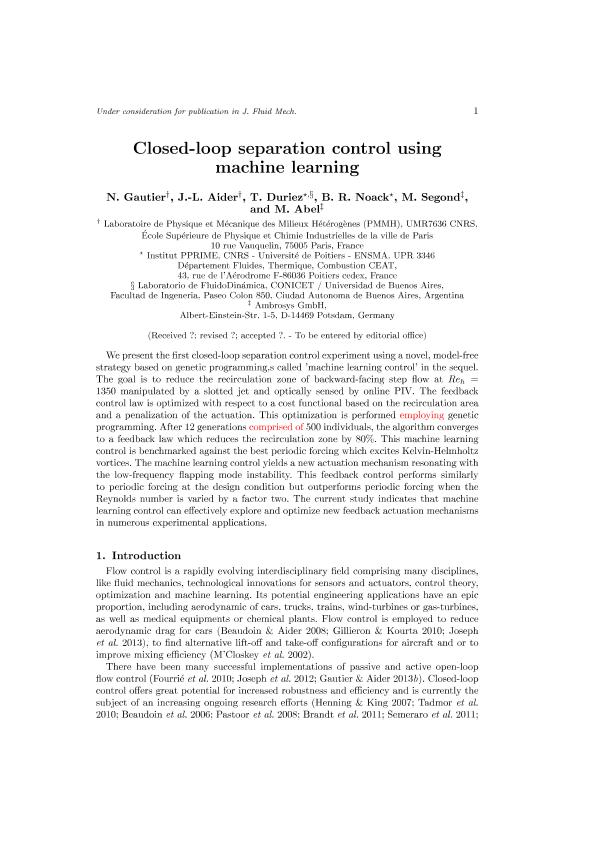Artículo
Closed-loop separation control using machine learning
Fecha de publicación:
05/2015
Editorial:
Cambridge University Press
Revista:
Journal of Fluid Mechanics
ISSN:
0022-1120
Idioma:
Inglés
Tipo de recurso:
Artículo publicado
Clasificación temática:
Resumen
We present the first closed-loop separation control experiment using a novel, model-free strategy based on genetic programming, which we call 'machine learning control'. The goal is to reduce the recirculation zone of backward-facing step flow at Reh = 1350 manipulated by a slotted jet and optically sensed by online particle image velocimetry. The feedback control law is optimized with respect to a cost functional based on the recirculation area and a penalization of the actuation. This optimization is performed employing genetic programming. After 12 generations comprised of 500 individuals, the algorithm converges to a feedback law which reduces the recirculation zone by 80 %. This machine learning control is benchmarked against the best periodic forcing which excites Kelvin-Helmholtz vortices. The machine learning control yields a new actuation mechanism resonating with the low-frequency flapping mode instability. This feedback control performs similarly to periodic forcing at the design condition but outperforms periodic forcing when the Reynolds number is varied by a factor two. The current study indicates that machine learning control can effectively explore and optimize new feedback actuation mechanisms in numerous experimental applications.
Palabras clave:
Control Theory
,
Flow Control
,
Separated Flows
Archivos asociados
Licencia
Identificadores
Colecciones
Articulos(SEDE CENTRAL)
Articulos de SEDE CENTRAL
Articulos de SEDE CENTRAL
Citación
Gautier, N.; Aider, J. L.; Duriez, Thomas Pierre Cornil; Noack, B. R.; Segond, M.; et al.; Closed-loop separation control using machine learning; Cambridge University Press; Journal of Fluid Mechanics; 770; 5-2015; 442-457
Compartir
Altmétricas




